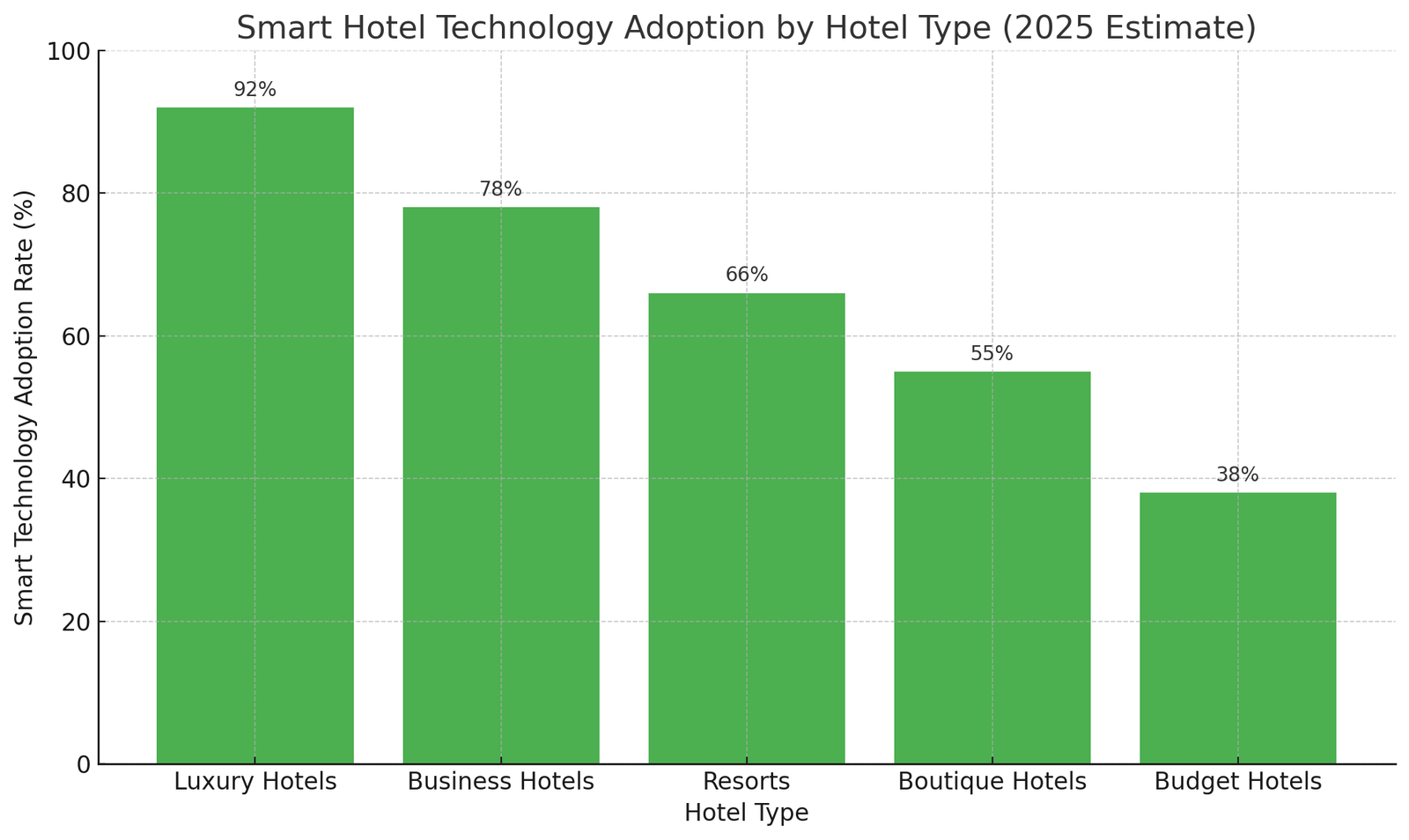This beginner-friendly guide to smart hotels explains core concepts, key technologies, and benefits for both guests and hotel operators. Discover how smart hotel systems are reshaping the future of hospitality in 2025 and beyond.
In the age of intelligent devices and seamless connectivity, the hospitality industry is undergoing a technological revolution. Enter the smart hotel — an innovative concept redefining how hotels operate and how guests interact with their environment. Whether you're running a boutique inn or a luxury resort, understanding what makes a hotel "smart" is essential for staying competitive in 2025 and beyond.
A smart hotel is a hospitality property equipped with interconnected technologies designed to enhance operational efficiency, reduce energy usage, and significantly improve guest experiences. It integrates devices and systems such as IoT sensors, automation tools, AI-powered analytics, and connected entertainment systems.
The goal of a smart hotel is to deliver a seamless, personalized, and efficient service that anticipates guest needs while optimizing operational costs.
Guest room automation enables visitors to control lighting, curtains, temperature, and even entertainment through touch panels, mobile apps, or voice commands. It creates a comfortable and personalized environment that adapts to the guest’s preferences.
| Feature | Function |
|---|---|
| Smart Thermostat | Maintains desired temperature automatically |
| Curtain Control Systems | Opens or closes curtains based on light or time |
| Scene Presets | Sets lighting and mood for sleep, work, or relax |
Smart door locks allow guests to unlock their rooms using smartphones, NFC, or QR codes. It enhances security and reduces physical contact.
AI algorithms monitor equipment performance and predict failures before they happen. This ensures optimal uptime and lowers maintenance costs.
Voice assistants customized for hospitality allow guests to order services, control room features, or request information without lifting a finger.
Delivery and cleaning robots are increasingly being deployed to carry items, clean hallways, and even guide guests to their rooms.
Smart hotels streamline workflows by automating routine tasks, allowing staff to focus on higher-value services.
Through IoT sensors and energy management systems, hotels can monitor consumption and reduce electricity and water bills.
| Technology | Estimated Cost Savings (%) |
|---|---|
| Smart Lighting & HVAC | 20–30% |
| Occupancy-Based Energy Control | 15–25% |
| Predictive Equipment Maintenance | 10–20% |
Personalization and convenience lead to higher guest ratings, more positive reviews, and increased repeat bookings.
IoT (Internet of Things) is the backbone of smart hotels. It connects all devices and systems so they can communicate and adapt in real time. Sensors in rooms detect motion, light levels, or occupancy and send data to a central system for automated responses.
| Device | Purpose |
|---|---|
| Occupancy Sensor | Detects presence to control HVAC/lighting |
| Smart Thermostat | Regulates temperature automatically |
| Smart Door Lock | Provides keyless, contactless access |
| Leak Detection Sensor | Prevents water damage and loss |
Not all smart hotels are created equal. Adoption and technology depth vary by hotel category. Here's a breakdown:

| Hotel Type | Common Smart Tech Features |
|---|---|
| Luxury Hotels | Full automation, voice control, service robots, AI analytics |
| Business Hotels | Smart rooms, keyless entry, high-speed connectivity |
| Resorts | IoT-based climate control, mobile concierge, smart TVs |
| Boutique Hotels | Digital signage, mood lighting, integrated entertainment |
| Budget Hotels | Smart locks, motion-based energy saving |
While the benefits are clear, transitioning to a smart hotel requires careful planning. Challenges include:
Is your focus energy saving, guest experience, or operational control? Set clear KPIs.
Pick technologies that integrate easily with your PMS (Property Management System) and can grow with your business.
Begin with one area, like guest room automation or keyless entry, and scale based on ROI.
A smart hotel is only effective when your team knows how to manage and support the tech.
The hotel of the future will be autonomous, AI-driven, and hyper-personalized. Data collected through IoT and guest behavior will power automated decision-making in real time. Guests will enjoy tailored services before they even arrive — all thanks to interconnected technology.
In 2025, smart hotels are no longer a novelty; they are a necessity for competitive positioning, guest loyalty, and sustainable operations.